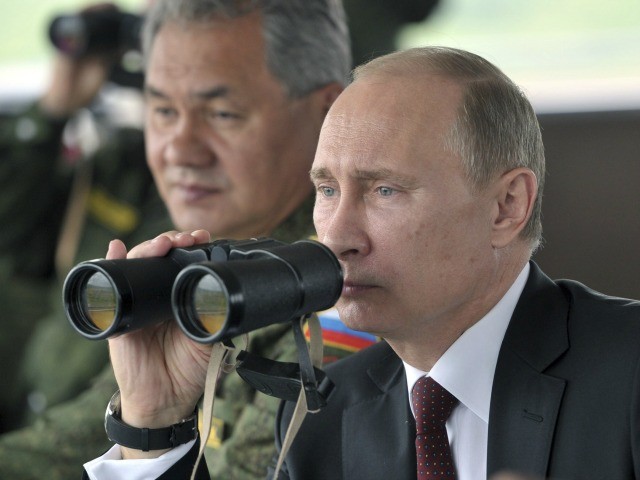On Thursday, Swedish intelligence reportedly picked up a distress call from an unknown vessel in its waters off Stockholm. The call, in Russian, may have been from a Russian submarine.
The Russians have denied having any naval assets in the area. Since then, Swedish naval forces have been trying to locate the vessel, and have warned commercial traffic away from the search area.
If this were an isolated incident, and it weren’t in Swedish waters, it could be written off as the sort of routine encounter that navies have from time to time. But the location and the fact that these events are occurring regularly proves that Vladimir Putin’s neo-Soviet Russia has resumed one of its principal habits from the Cold War.
During the Cold War, Russian aircraft frequently probed American defenses at home, in Europe and elsewhere to gain intelligence on which of our forces would react, in what strengths and how quickly. Their navy shadowed ours – and vice versa – for the same reason. But the number of such incidents is increasing steadily. Last month, for example, a Russian “fighter drag” – in military parlance, a tanker aircraft flying along with several fighters to refuel them on a flight far outside their normal range – was intercepted off Alaska by US Air Force fighters.
The apparent incursion in Sweden’s waters is almost certainly another example. Though the emergency radio broadcast to Russia may have been a distress call, one source – an expert on the Russian military – suggested that it is more likely a test of the submarine’s ability to evade Swedish forces and escape. (He also said that the submarine in question might be a relatively small Russian special forces sub known as the “Losos Class” which were supposedly scrapped in the 1990s, or a new version of it.)
The increasing tempo of these incidents, and the West’s failure to react to them, comes at a time when Russia’s economy – dependent on oil and gas sales, especially to Europe – is threatened by a major drop in the price of oil. But Russia appears undeterred. Its military spending – though undisclosed – must be enormous judging by its actions and its development and production of major weapon systems.
Last week, President Obama said that the sanctions against Russia could be lifted if Russia pursued peace and diplomacy. He was answered on Sunday by Russian Foreign Minister Lavrov, who mocked the failed Obama-Clinton “reset” of Russian-American relations. Lavrov said, “We are absolutely interested in bringing the ties to normal but it was not us who destroyed them. Now they require what the American would probably call a ‘reset’.”
This is the sort of rhetoric Putin uses often. It is not just reminiscent of Soviet Cold War rhetoric, it is identical in tone and intent. Both he and Lavrov – and their Soviet forebears – always blamed the West for what was wrong and denied any fault. They mocked Western words and actions in a manner calculated to make the West always the supplicant. And they always declared their only interest was in peace. We came to be used to that in the Cold War, but the new generation of national leaders – Obama, Britain’s Cameron, France’s socialist Hollande and Germany’s Merkel – have neither judged Putin’s Russia as the neo-Soviet adversary it is nor have they undertaken any policy or strategy to combat Russia’s revived hegemonistic ambitions.
It’s not hard to diagnose them as suffering a new version of “Stockholm Syndrome,” the psychological effect in which hostages sympathize with their captors. Russia’s annexation of the Crimean Peninsula, and subsequent quasi-invasion of Ukraine was condemned, belatedly, by some governments and minor sanctions put in place that have proved to be entirely ineffective in changing Russia’s behavior. It is as if these leaders believe they are Putin’s captives. Ronald Reagan used to commemorate the enslavement of the Soviet Union’s conquered satellites in “Captive Nations Week.” Now the West is more interested in appeasing Putin than in ensuring the freedom of Ukrainians.
The NATO Treaty doesn’t requires any member nation to spend any specific amount of its gross domestic product on defense and none – except for the United States – spend more than a token amount. It’s no wonder that they suffer from a national version of the Stockholm Syndrome. If they don’t believe in investing in their own defense, why should they believe they can stand up to any aggressor?
Jed Babbin served as a deputy undersecretary of defense in the George H. W. Bush administration. He is a senior fellow with the London Center for Policy Research and the author of several books, including “In the Words of Our Enemies,” and “The BDS War Against Israel.

COMMENTS
Please let us know if you're having issues with commenting.